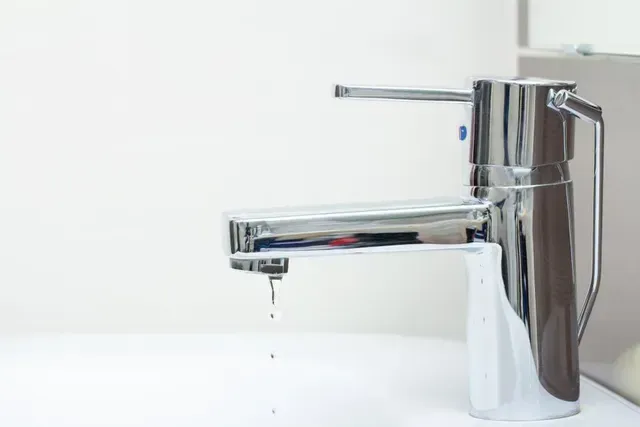How to Know if Your Expansion Tank Is Properly Sized
Expansion tanks play a vital role in heating and plumbing systems, helping to absorb excess pressure caused by the expansion of water as it heats. However, if the expansion tank isn’t properly sized, it can lead to a range of issues, from pressure fluctuations to potential damage to your system. This article will help you understand why expansion tank size matters, how to determine the right size for your system, and includes a size calculator to make things easier.
Expansion Tank vs. Pressure Relief Valve: What’s the Difference?
Why Expansion Tank Size Matters
The size of an expansion tank is critical because it must be able to handle the volume of water that expands when it heats up in a closed-loop system. An undersized tank may not absorb enough pressure, causing relief valves to open, leaks to form, or other system components to fail prematurely. Conversely, an oversized tank may waste space and add unnecessary costs.
An appropriately sized expansion tank:
Absorbs Pressure Efficiently: Ensures that your heating or plumbing system can handle pressure changes without risking damage.
Protects System Components: Prevents wear and tear on system components by regulating pressure within safe levels.
Enhances System Efficiency: Allows your system to run smoothly without the risk of overpressure, leaks, or malfunction.
Signs Your Expansion Tank May Be Improperly Sized
If your expansion tank is not properly sized, you may notice some tell-tale signs:
Frequent Leaks: Leaks near the tank or valves may indicate that the tank can’t handle the pressure.
Pressure Relief Valve Activation: A valve that frequently opens could be a sign that the expansion tank is too small.
Waterlogging: If the tank becomes waterlogged often, it might be undersized or not set to the right pressure.
Fluctuating Water Pressure: Inconsistent water pressure within the system could be due to an improperly sized expansion tank.
How to Determine the Right Expansion Tank Size
There are several factors to consider when sizing an expansion tank. Knowing your system’s total volume and operating pressure will help ensure you choose the correct size.
1. System Volume
The total volume of water in your heating or plumbing system will affect the size of the expansion tank needed. This includes the water in your boiler, pipes, and radiators (if applicable). The more water in your system, the larger the expansion tank you will need.
2. System Temperature Range
The amount of expansion depends on how much the water temperature rises. For heating systems, higher temperatures result in more significant expansion, meaning you may need a larger tank for high-temperature applications.
3. Operating Pressure
Your system’s maximum operating pressure, or the pressure at which the system usually operates, is another key factor in determining the expansion tank size. Systems with higher pressure require expansion tanks capable of managing this pressure increase.
4. Static Pressure
This is the initial fill pressure in a cold system and is usually measured in pounds per square inch (psi). Your tank should be pre-charged to match this pressure.
Using an Expansion Tank Size Calculator
To make sizing easier, you can use an expansion tank size calculator. These calculators require input like the system volume, operating pressure, and temperature range to determine the right expansion tank size. Here’s how to use one effectively:
Measure System Volume: Input the total volume of water in the system.
Enter Temperature Settings: Specify the minimum and maximum operating temperatures.
Provide Pressure Information: Add both the static and operating pressures for accuracy.
| System Volume (gallons) | Max Temperature (°F) | Max Pressure (psi) | Suggested Expansion Tank Size (gallons) |
| 40 | 180 | 15 | 4.4 |
| 60 | 180 | 15 | 6.0 |
| 80 | 180 | 15 | 8.0 |
| 100 | 180 | 15 | 10.3 |
| 120 | 200 | 20 | 13.5 |
Commonly Asked Questions (FAQs)
1. How can I tell if my expansion tank is the wrong size?
An undersized tank may result in pressure relief valve discharge, frequent leaks, and fluctuating water pressure. If oversized, it may waste space and money without added benefits.
2. Can I install an expansion tank myself?
While it’s possible to install an expansion tank on your own, sizing and pressure adjustments can be challenging. Consulting a licensed plumber ensures safe and proper installation.
3. Is it better to go slightly larger if I'm unsure of the size?
It's generally better to have a slightly larger expansion tank than one that’s too small. However, going too large can be unnecessary and costly. Consulting a professional can help strike the right balance.
4. What happens if I don't install an expansion tank?
In closed-loop systems, without an expansion tank, pressure fluctuations can damage pipes, valves, and other components, eventually leading to leaks or system failure.
5. How long does an expansion tank typically last?
An expansion tank can last around 5-10 years with regular maintenance. If you notice pressure issues or leaks before that, it may be undersized or damaged.
Conclusion
Selecting the proper expansion tank size is essential for maintaining your plumbing or heating system’s health and efficiency. An undersized tank can lead to excess pressure and system damage, while an oversized tank may be unnecessary and costly. To ensure your system operates smoothly, take the time to calculate the right size based on factors like system volume, temperature, and operating pressure. If you’re unsure about sizing, installing, or maintaining your expansion tank, consider consulting with All City Plumbers. Their team can assist you with all aspects of expansion tank sizing and installation, ensuring your system functions safely and effectively.










